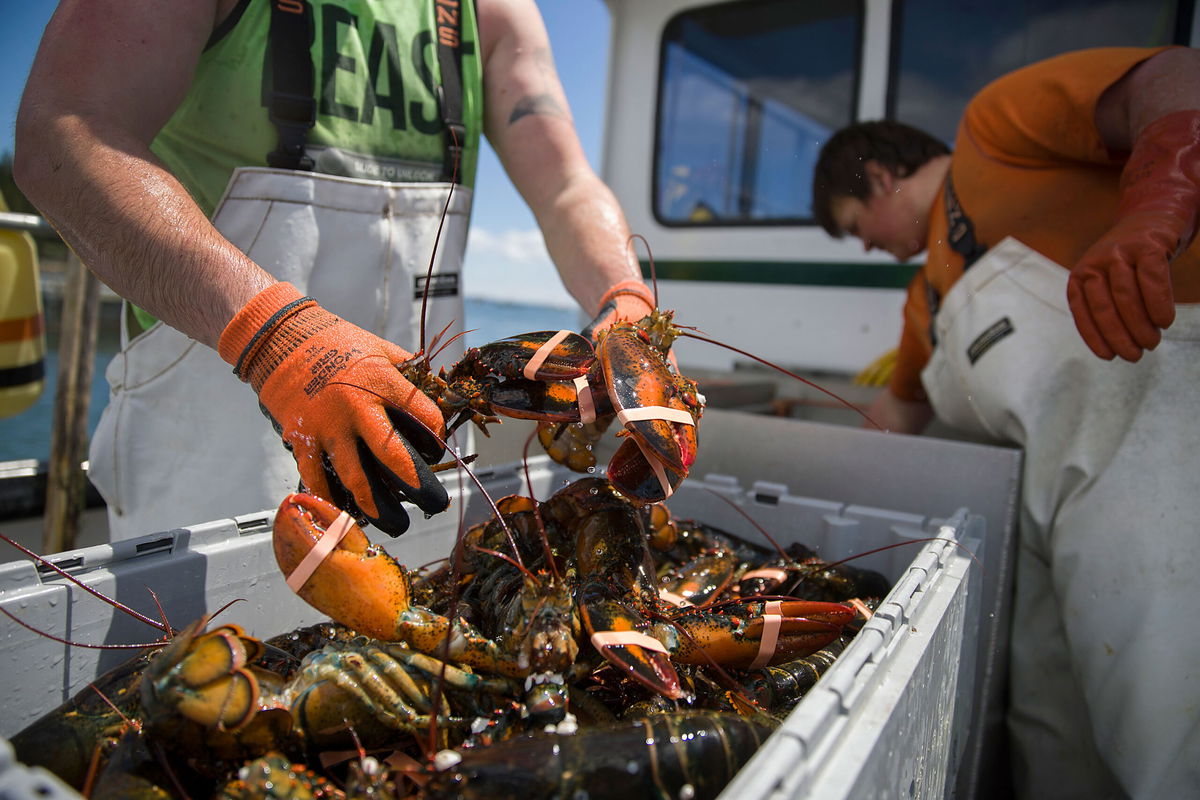Maine lobstermen could get a lifeline from the federal spending bill

Lobstermen and women could be thrown a lifeline from the annual federal spending bill.
By Katie Lobosco, CNN
Lobstermen and women could be thrown a lifeline from the annual federal spending bill after the Maine congressional delegation secured a provision that puts a six-year pause on some stronger environmental regulations.
Aimed at protecting the endangered North Atlantic right whale, the regulations could require lobstermen to change the way they fish by potentially reducing the amount of rope used and creating new non-fishing zones.
Maine’s lobster fishers have been desperate to delay the regulations, but environmentalist groups warn that the whale species is at risk of not surviving without more stringent rules in place. There are only about 340 North Atlantic right whales left.
While right whales have been seen entangled in fishing lines, Maine lawmakers argue that no whale death can be specifically attributed to Maine lobster gear. Ship strikes are also a leading cause of whale deaths.
The stronger federal regulations were scheduled to be finalized by 2024. But the federal spending bill, which is expected to pass Congress by the end of Friday, would leave less stringent regulations in place until December 31, 2028, according to the bill text.
“Without our provision, Maine’s iconic industry could be facing a complete shutdown — and the ripple effects across our state would have been widespread,” said Maine Sens. Susan Collins and Angus King, Reps. Chellie Pingree and Jared Golden, along with Maine Gov. Janet Mills in a joint statement.
The bill also calls for creating a grant program that could fund new fishing gear technologies.
Lobster fishers have already changed their ways over the years, using fewer lines and weaker ropes to lay their traps in order to protect the right whales from becoming entangled.
Many lobstermen have protested the new regulations, which they argue would require too much change, too quickly. The changes could push some lobster fishers out of the business if they can’t afford to revamp their operations and invest in ropeless fishing gear.
“Anyone who votes for this amendment has the blood of a magnificent endangered species on their hands,” said Conservation Law Foundation senior attorney Erica Fuller in a statement released Tuesday, referencing the provision included in the spending bill.
The Conversation Law Foundation, along with other environmental groups, succeeded in federal court earlier this year in a lawsuit calling for strengthening the fishing regulations.
“Sneaking this move into a spending bill is a profound and disturbing end run around the legal system,” Fuller added.
But the Maine congressional delegation argues that the stricter regulations would be devastating to the lobster industry, the backbone of the state’s economy, without doing much to protect the right whales.
In a tweet Tuesday, Mills called the stronger rules “punitive” and said they “will not meaningfully protect the right whale but will threaten the livelihoods of thousands of Maine families and small businesses.”
Last year, the Maine Lobster Association filed a lawsuit challenging the federal 10-year whale plan, arguing that the government has overestimated the lobster industry’s risk to right whales. The lawsuit is ongoing.
After a federal court judge ruled in July that the current regulations don’t go far enough to protect right whales, the Maine lobster was red-listed by the Monterey Bay Aquarium’s Seafood Watch, which publishes recommendations on sustainable seafood. The Maine lobster fishery also lost a certification from the Maine Stewardship Council because of the concerns about whales.
Without those badges of approval, some retailers may avoid selling Maine lobster. Last month, for example, Whole Foods paused purchasing Maine lobster.
“As part of our commitment to responsible sourcing, we only sell wild-caught seafood from fisheries that are certified by the Marine Stewardship Council or rated either ‘Green’ or ‘Yellow’ by the MBA Seafood Watch program,” the company said in a statement.
The-CNN-Wire
™ & © 2022 Cable News Network, Inc., a Warner Bros. Discovery Company. All rights reserved.